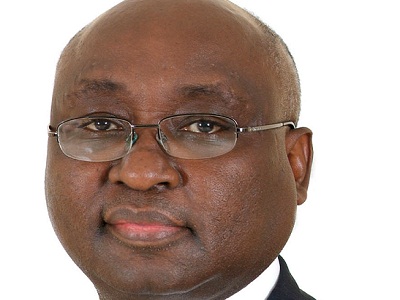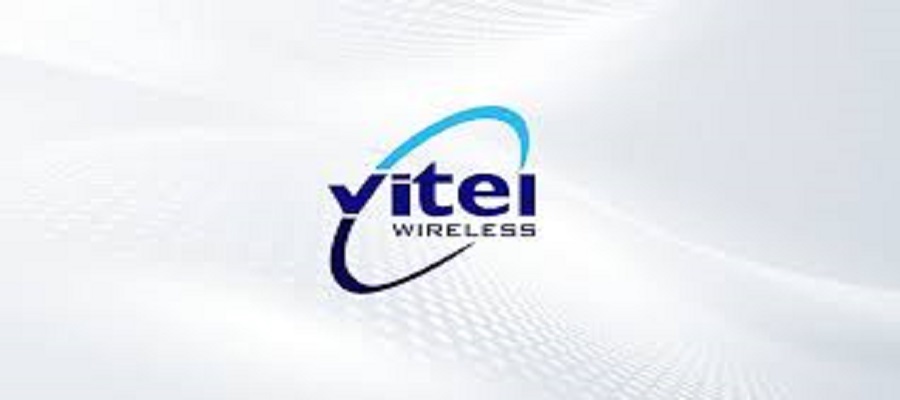General News
AfDB, African Virtual University Discuss Benefits of e-Learning

Stefan Muller, Lead Economist of the African Development Bank’s (AfDB) East Africa Regional Resource Center (EARC) has said that the bank consider the African Virtual University (AVU) Project very critical to the effort to improve access to higher education in Africa.
He said that AfDB is pleased to learn that the deliberation on the integration of e-learning and open education into mainstream education programs were fruitful.
Muller stated this during the first international conference African Virtual University organized in Nairobi, Kenya recently.
Under the topic “Integrating eLearning and Open Education to Increase Access to Quality Education and Training”, the conference brought together more than 100 participants including Ministries of Education and 22 universities from the Multinational AVU support project** as well as the private sector.
The main objective of this first gathering was to discuss the future of e-learning in Africa and the role of Open Education Resources (OERs) including the Massive Open Online Courses (MOOCs) in the ICT learning revolution.
“The conference is very timely, it is taking place at a time of ICT revolution in Africa. It is critical for the Bank to ‘seize the moment’ and ensure that regional member countries harness ICT technologies that will result not only in increased access, but also facilitate quality and relevance of education,” said Ruth Charo, Principal Social Development Specialist, AfDB EARC.
“OERs, including MOOCS, have the potential to enhance access to quality education. However, certification and accreditation for the OERs has to be looked into. In all countries, especially in Africa, certification as an evidence of one having acquired training is almost mandatory. Networking and partnerships among institutions in Africa and the West will be critical to achieve this,” she added.
In addition to OERs and MOOCs, discussion also centered on ICT infrastructure including access to e-learning and mobile learning; accreditation and quality assurance in e-learning; management of e-learning; and gender aspects in e-learning.
Benefitting from AfDB funding, the AVU Capacity Enhancement Program (ACEP) launched a training on November 18, 2013 to equip AVU’s partner institutions with e-learning skills in areas such as ICT instructional processes, technology support and management of e-learning. AVU is also considering the delivery of the ACEP program on MOOCs.
To this purpose, a feasibility analysis is being conducted to ensure issues such as certification and quality assurance are given the necessary attention.
The ICT-enhanced curriculum structures for Teacher Education Program in Maths and Sciences have been shared with the universities for review after which the specific ICT-enhanced modules authoring will begin.
The professional development program offers today 13 learning modules for open distance and e-learning programs, including materials development and instructional design, governance, management and financing of open, distance and e-learning programs .
General News
Vitel Wireless, First MVNO Begins SIM Distribution

Vitel Wireless, Nigeria’s first Mobile Virtual Network Operator (MVNO) has entered into partnership with Slot Systems Limited for distribution of its SIM cards and other gadgets around the country.

Chudi Nwabueze, managing director, Vitel Wireless who described the partnership as a defining moment for his company said Vitel Wireles’s purpose is clear: to transform connectivity in Nigeria through innovation, affordability, and seamless access.
Nwabueze, who spoke in Lagos recently at the official engagement with Slot said Vitel Wireless, as the nation’s first Mobile Virtual Network Operator is committed to creating smart, reliable solutions that break down barriers to communication and make it easier and more cost-effective for people to stay connected anytime, anywhere.
“This partnership with SLOT is a meeting of shared values and vision. By combining our innovative mobile services with SLOT’s extensive retail presence, we are making Vitel Wireless SIM cards and the connectivity they offer more accessible than ever before. Customers will now be able to purchase, register, and top-up their SIM cards conveniently within their own communities.”
He described the collaboration as more than just distribution, ”it is about empowering people. It is about bridging the connectivity gap with technology, accessibility, and affordability at the heart of everything we do.”
Nwabueze further explained Vitel Wireless SIM card is a location technology awareness card. It can track whereabouts of a person. This information can help the police, on official demand, in case of unfortunate incident.
He said the disadvantages of tracking a person’s whereabout outweighs the advantages.
He explained that access code is given to another person for tracking.
“We operate as a core network and we have integrated with all the major networks in Nigeria, including international calls. So, on a simple language, we are a GSM company, that you do call, SMS, data and we offer more value like safety. And the good news is that we are spread out in the 36 States plus Abuja FCT in Nigeria.
General News
Digital Realty Nigeria Launches ServiceFabric Platform Today

Digital Realty Nigeria, a carrier-neutral data centre operator, will be launching its ServiceFabric® platform alongside opening of its new LKK2 Data Centre in Lagos today.

ServiceFabric Platform in Lagos Nigeria, aligned with Digital Realty’s commitment to enabling seamless global interconnectivity for businesses, providing enterprise customers in Nigeria with the ability to connect whenever, wherever, and to whoever they need to.
Engr. Ikechukwu Nnamani, managing director, Digital Realty Nigeria, said that the presence of ServiceFabric in Lagos will support the growing demand for hybrid IT and multi-cloud connectivity, empowering businesses with a secure, software-defined interconnection platform.
“As you are aware, data is driving our world forward across every aspect of the economy. To unlock the opportunities of data we provide the meeting place for Companies, Technologies and Data to come together across Africa, one of the fastest growing continents, and in the process, we enable bold new ways to expand and grow,” he said.
Digital Realty’s global data centre footprint gives customers access to the connected communities that matter to them with over 300 facilities in 50 global metros across 25 countries on six continents. Digital Realty currently maintains client base of over 5,000 customers including over 1,500+ enterprises, 1,300+ networks service providers, and over 1,000+ cloud and IT providers. It offers datacentre services to 250+ of the Fortune 500 companies.
General News
Meta Refactors AI Strategy, Freezes Hiring to Focus on Superintelligence

Meta Platforms has frozen hiring in its artificial intelligence division following months of aggressive recruitment, according to sources familiar with the matter.

The hiring freeze, which took effect last week, coincides with a broader restructuring of the company and restricts current employees from moving between teams within the AI division. The duration of the freeze has not been disclosed.
“There might be exceptions to the block on external hires, but they would need permission from Meta’s chief AI officer, Alexandr Wang,” the sources said. A Meta spokesperson confirmed the freeze, describing it as “basic organizational planning: creating a solid structure for our new superintelligence efforts after bringing people on board and undertaking yearly budgeting and planning exercises.”
Meta has been a leading player in the AI talent race, offering some researchers pay packages worth nine figures and acquiring startups to secure key personnel. Analysts have raised concerns over the high cost of such hiring, warning that Meta’s stock-based compensation could affect shareholder returns.
The restructuring divides Meta’s AI operations into four teams: TBD Lab, focused on superintelligence; an AI products team; an infrastructure team; and a long-term exploratory team called Fundamental AI Research. The reorganization follows criticism of the company’s previous AGI Foundations team, responsible for Meta’s Llama large language models, which underperformed expectations after its latest release.
After the Llama release in April, CEO Mark Zuckerberg became personally involved in recruiting, reaching out to researchers at OpenAI, Google DeepMind, and other labs. Offers sometimes reached $100 million in total compensation, with one overture to Thinking Machines Lab co-founder Andrew Tulloch valued at $1.5 billion, though he declined.
To strengthen its AI efforts, Meta also brought on Scale AI co-founder Alexandr Wang, former GitHub CEO Nat Friedman, and Safe Superintelligence co-founder Daniel Gross, with the company acquiring stakes in their ventures as part of the recruitment. By mid-August, Meta had hired over 50 AI researchers and engineers from companies including OpenAI, Google, Apple, xAI, and Anthropic.
Investor concern over the cost of tech giants’ AI expansions has contributed to a recent selloff in technology stocks. In an August 18 research note, Morgan Stanley analysts warned that rising stock-based compensation at Meta and Google could either drive AI breakthroughs or dilute shareholder value without clear innovation gains.

 Telecom2 days ago
Telecom2 days agoFG Scraps 5 Percent Telecom Excise Duty Under New Tax Law

 News2 days ago
News2 days agoNACCIMA, TETFund Forge Alliance to Boost Innovation, Skills, Economic Growth

 News2 days ago
News2 days agoWinners Emerge in the PalmPay, Glo Campaign

 General News2 days ago
General News2 days agoIHS Nigeria, Osun State partner to transform technical education

 E-Financial2 days ago
E-Financial2 days agoFlutterwave, iPaylinks Partner on Africa–Asia Payments

 Telecom2 days ago
Telecom2 days agoRoqqu, SiBAN Unite to Drive Blockchain Innovation Across Nigeria

 General News2 days ago
General News2 days agoHow Poor Public Power Supply Stalls Digital Adoption- Ekeh

 General News2 days ago
General News2 days agoFG Hails Moniepoint’s Role in Showcasing Northeast’s Agricultural Resilience Through Digital Innovation























